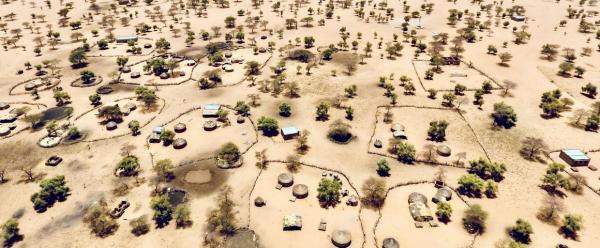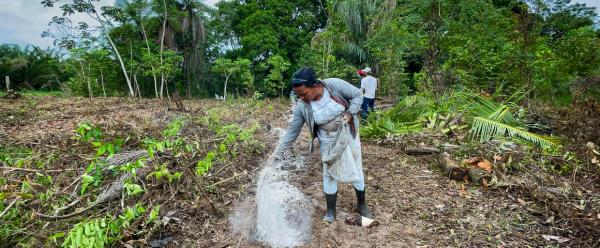Expert view 25 April 2024
- Home
- CIRAD news
- News
- Africa is calling for carbon taxation
Nairobi Declaration: Africa is calling for a global carbon taxation regime

© R. Belmin, CIRAD
To raise the funds needed for the energy transition in Africa (600 billion dollars by 2030), the Nairobi Declaration urges world leaders to "consider the proposal for a global carbon taxation regime including a carbon tax on fossil fuel trade, maritime transport and aviation, that may also be augmented by a global financial transaction tax".
Carbon credits are under fire, but are not finished yet
However, for Alain Karsenty, environmental ecologist at CIRAD and specialist in such issues, "African countries are not yet ready to give up the potential fund transfers linked to carbon markets, notably through the 'cooperative approaches between countries' referred to in Article 6.2 of the Paris Agreement (2015). Several African countries, including Ghana and Senegal, have signed agreements with Switzerland to sell the 'results of emissions reductions' to it.".
The United Arab Emirates, where the next climate COP will be held in late 2023, have passed or are finalizing agreements with Liberia, Zimbabwe and Tanzania. The aim is to acquire exclusive rights to sell carbon credits for conservation and reforestation operations across vast swathes of those countries. As Le Monde headlined on 2 August 2023, Liberia is prepared to concede 10% of its land area to an Emirati firm, to produce carbon credits.
Contribution versus compensation
Nevertheless, voluntary carbon markets, on which some African countries are also banking, are currently looking uncertain. On the one hand the price of carbon credits is dropping, and on the other, their credibility is increasingly in doubt, notably following the publication of articles in PNAS and Science and covered by the Guardian at the start of the year. "Hundreds of millions of carbon credits, some of them issued in the early 2000s, have still failed to find a buyer", Alain Karsenty stresses, "not just because of excess supply, but also due to doubts as to their environmental integrity".
Taxation, in the form of a global carbon tax, is more likely to generate stable revenue in the long term. In 1997, during the talks leading up to the Kyoto Protocol, the carbon tax and emissions permit options were both on the table. Opposition from some countries (the US, for instance, which has still never ratified the Protocol) led to the second option being chosen. That experiment has proved disappointing, but private operators have sized upon the carbon credit instrument to build a voluntary market that satisfies the wish of numerous firms to become "carbon neutral" without necessarily having to cut their emissions to any real extent. This is the famous carbon offset principle.
On The Conversation: Histoire des crédits carbone : vie et mort d’une fausse bonne idée ? (English version available shortly)
Global carbon taxation, a diplomatic headache
The position African countries have adopted is the same as that of France: at the Global Financial Pact Summit in Paris in June 2023, French President Emmanuel Macron called for a tax on maritime trade, while stressing the need to bring China, the US and other European countries on board in order for it to become a reality. As Alain Karsenty points out, "there are in effect serious diplomatic obstacles to be overcome before a global carbon tax is introduced".


























